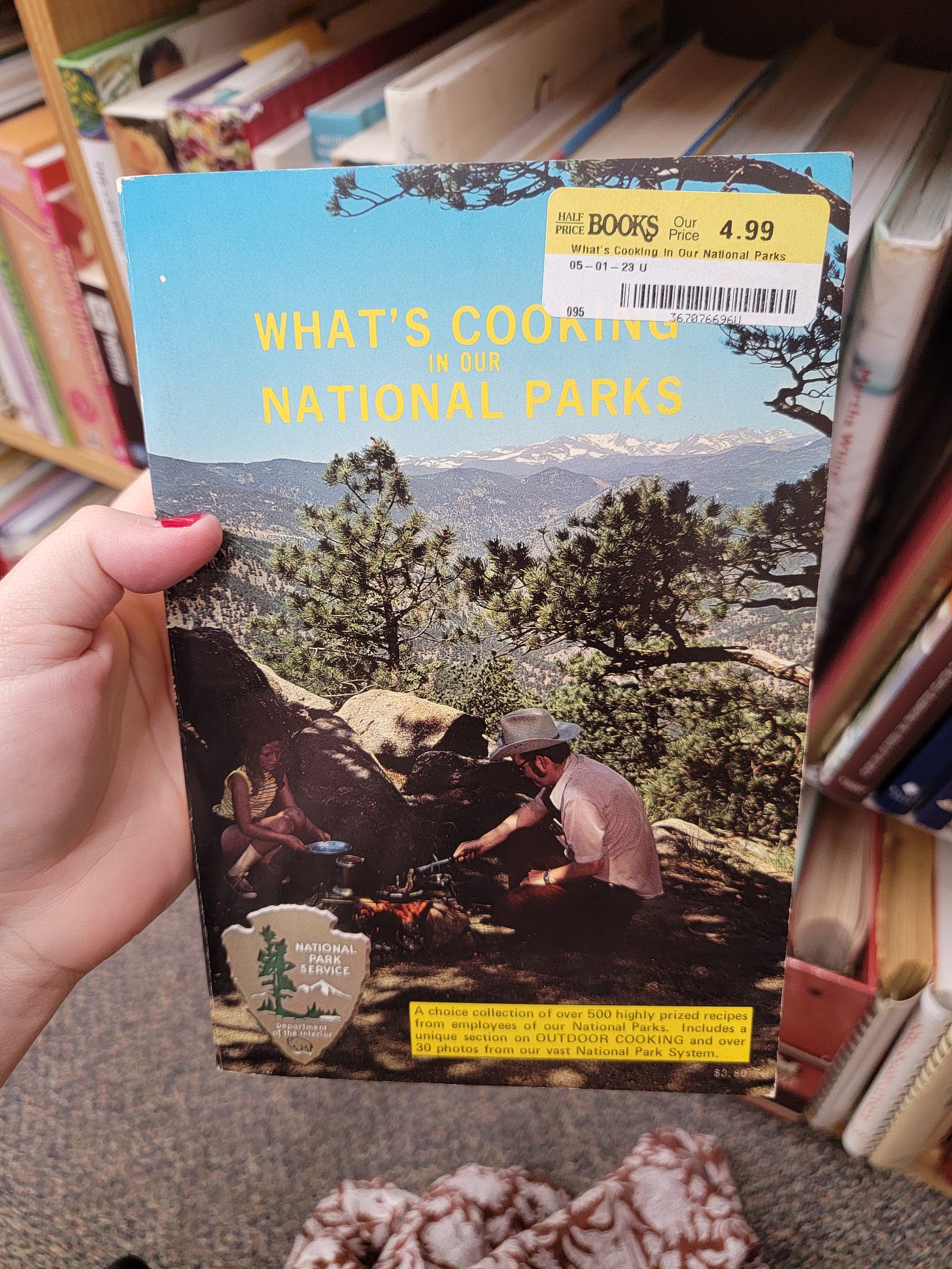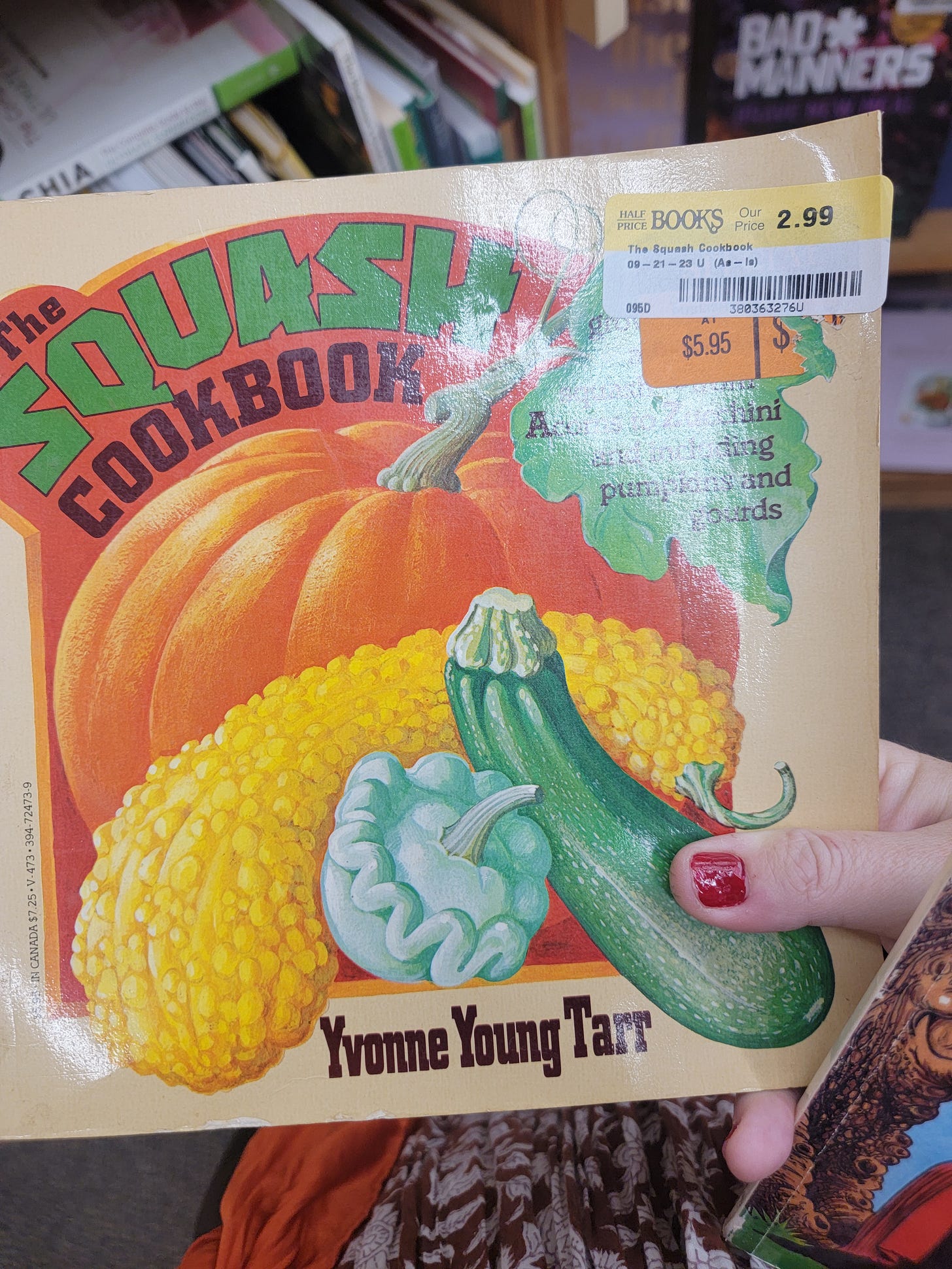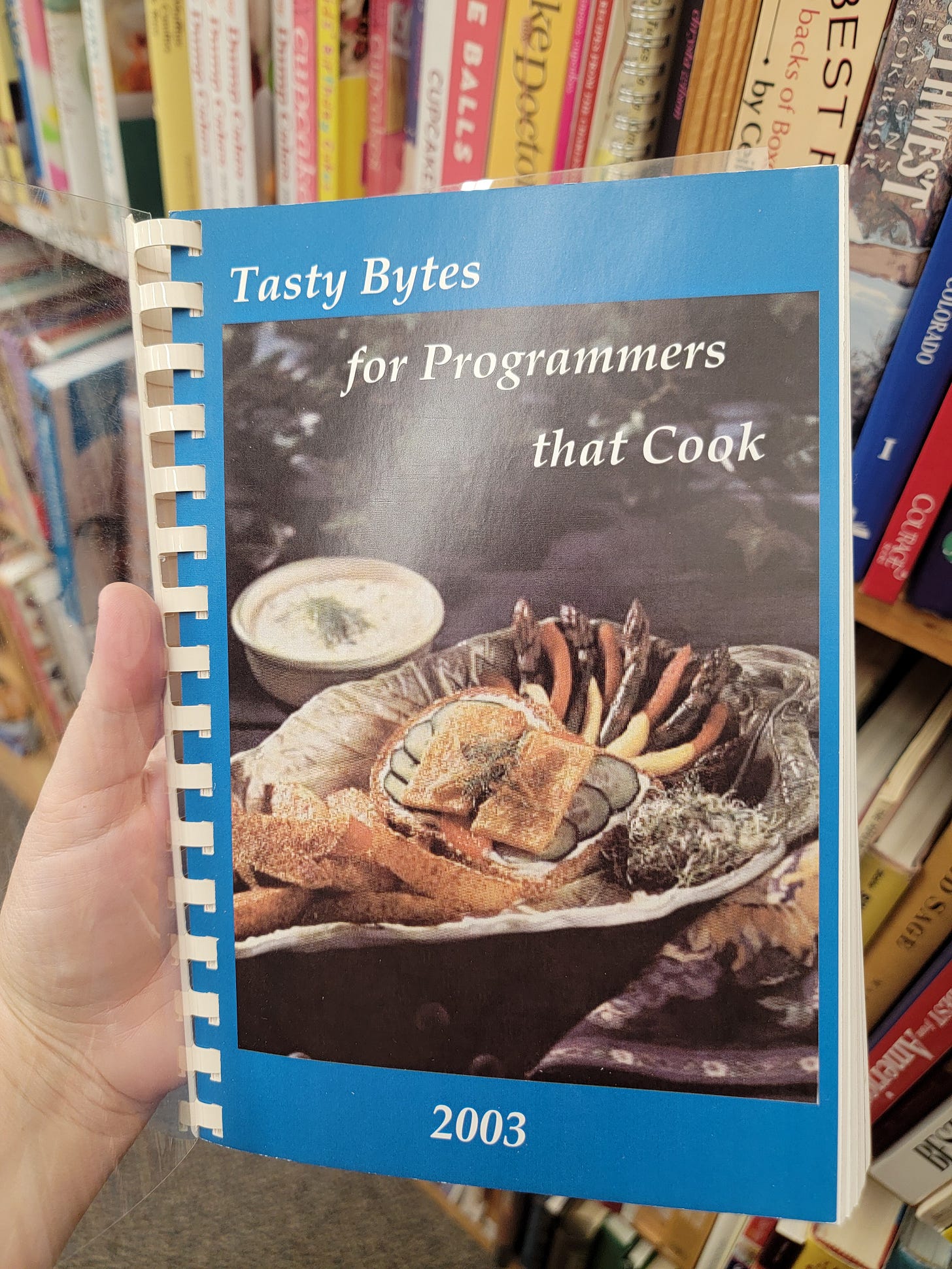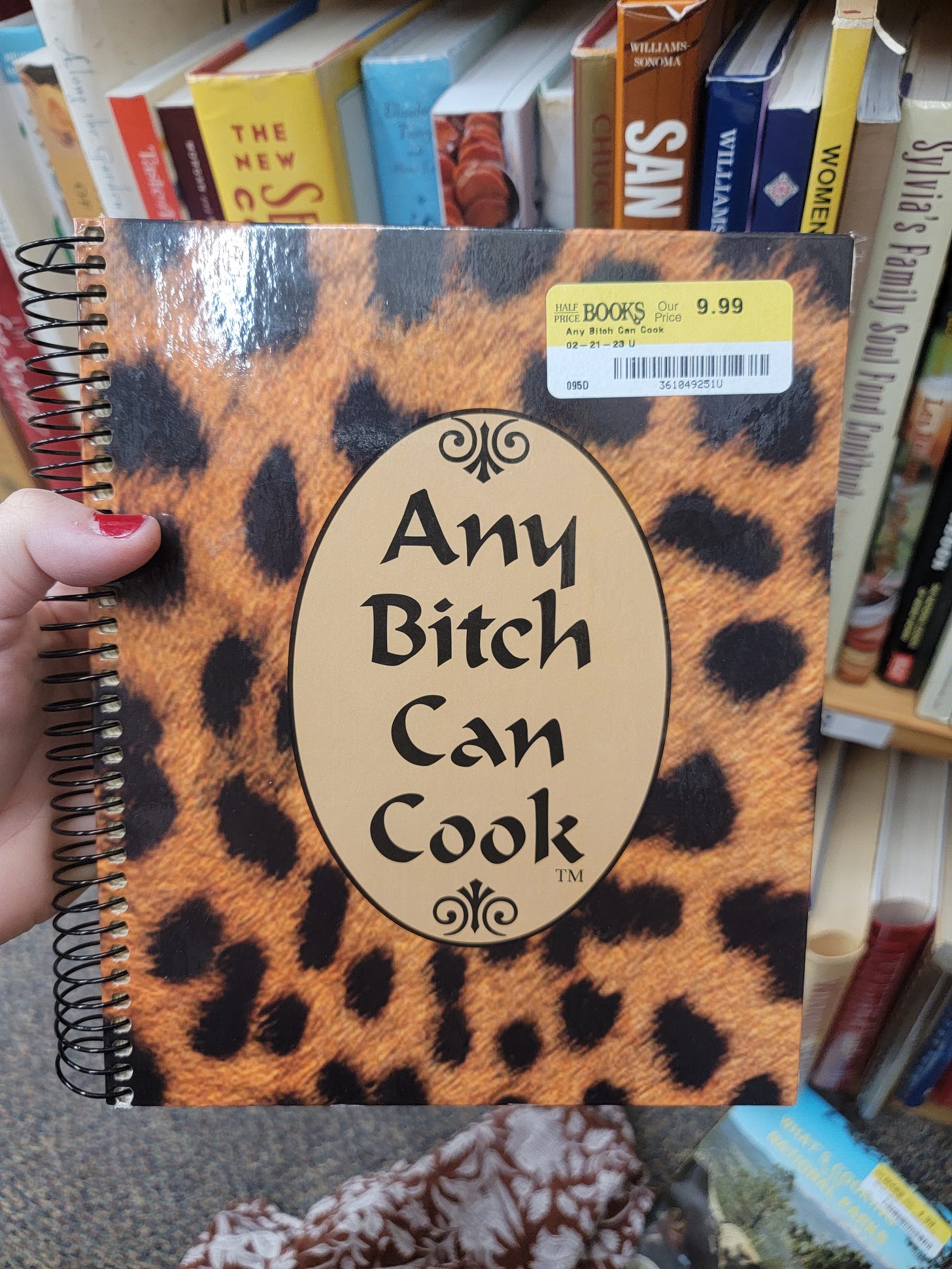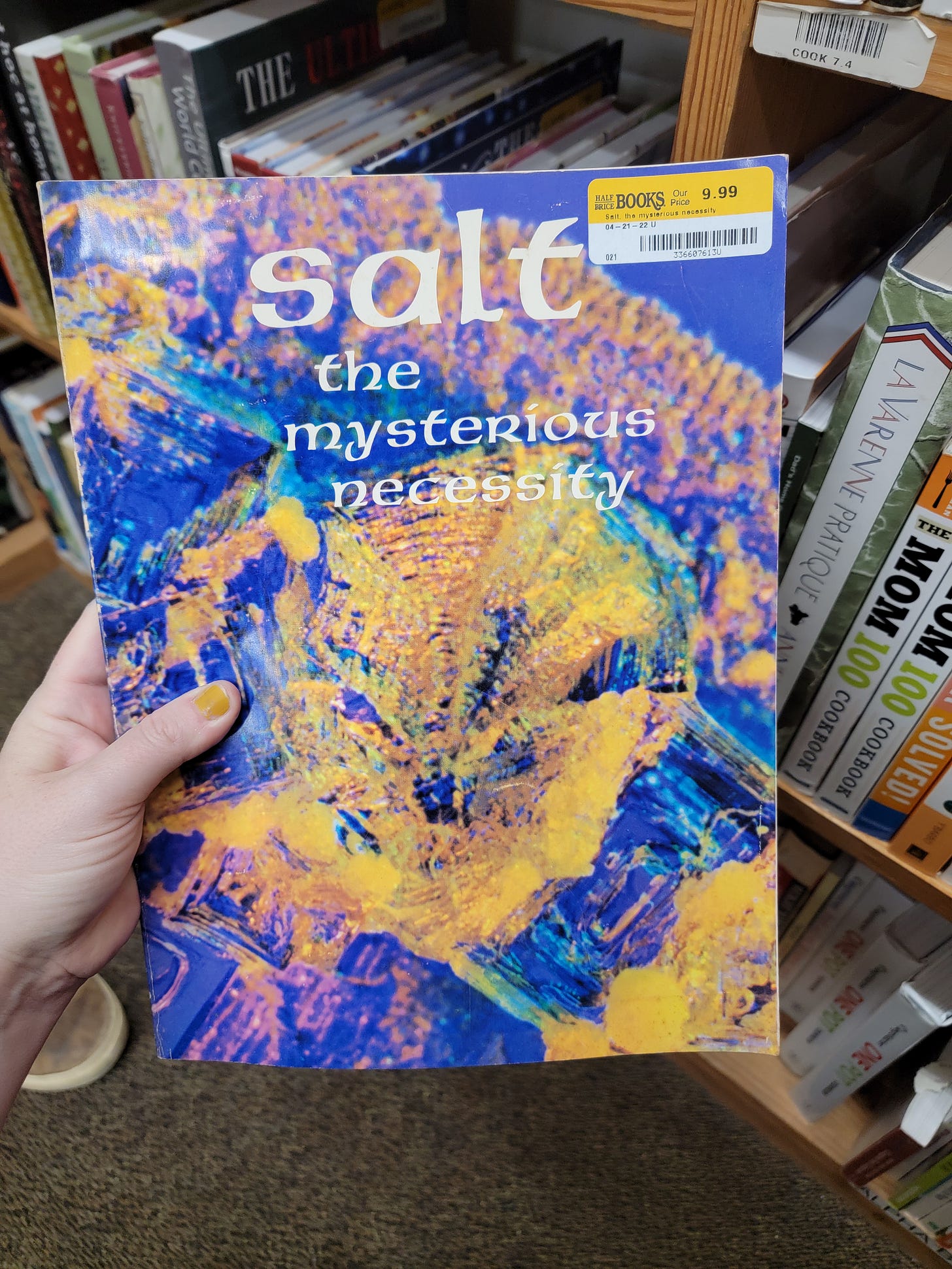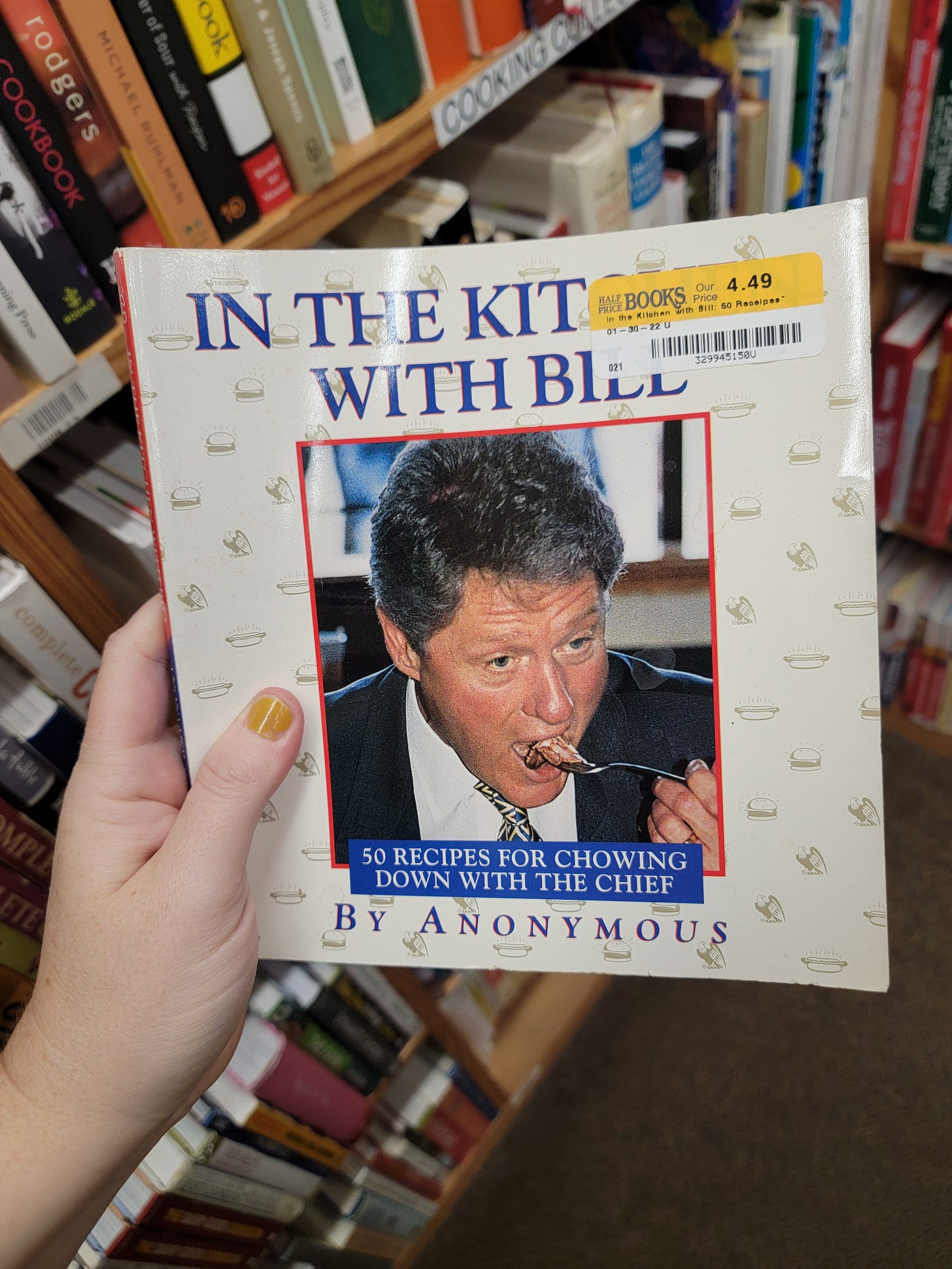UPDATE FROM THE EDITOR
I appreciate your patience with my absence. Please accept my excuses:
Avoided my computer. My doctor said I grew a quarter-inch and that might eyesight has improved. (grad school is a scourge)
Talked to smart people about kitchen technologies and AI and the pitfalls of push-button magic in food history (more on this soon!).
Helped shoot a cookbook (and remembered why I write about the food industry instead of cooking in it).
Worked on several book projects because why not?
Spent (and continue to spend) an inordinate amount of time working on a parent-child Halloween costume. She’s going to be Garfield and I shall be a pan of lasagna.
Around this time each year, or perhaps several weeks ago (I’ve lost track *what is time anyways*), food media publications old and new release their BEST FALL COOKBOOK PICKS and THE BEST COOKBOOKS FOR FALL 2023. I read them all because, probably like you, I love cookbooks. I love the pictures, I love the essays, I love the recipes, and I’m a sucker for a well-done cover and kitschy typefaces.
And around this time every year, I find myself wondering about all the cookbooks that, for one reason or another, didn’t earn a coveted spot on these lists. And what about the old(er) cookbooks that were callously (or perhaps with less malice or even much consideration) moved from their long-held spaces on a kitchen or dining room shelf to make room for the new, shiny reads of the year. In an age of rampant consumerism and the evils of fast fashion extoled by TikTokers and environmentalists alike, I wonder about the impact(s) of this biannual deluge (remember it happens in the spring/summer, too) of BEST and NEW cookbooks for purchase. To be very clear, I want all these new recipes and insights on cooking (it is in my best interest professionally), but my training as a scholar of food history also makes me pause and grieve a little for the cookbooks that are moved or lost to make way for the new.
[At this point, I expect, nay demand, that you roll your eyes and harumph at least once because we scholars shouldn’t be allowed to wallow too much in the past as that makes us susceptible to disregarding the present. Thank you, I needed that.]
When I, to use some Internet speak, get all up in my food history-feels, I like to go to a place where the old and unwanted cookbooks go, the Used Book Store. I’ve never met a used book store I didn’t like, but my favorite is Half Price Books, to which I journey every time I return home to Texas. My process is always the same: I abandon my family and head directly to the Cookbook section, a U-shape arrangement of tall bookshelves typically housed between Religion and Crafting, and meticulously scan the titles row by row. I give an extra scan of the Texas section, obvs, but like to saunter through the spiral-bound church cookbooks and the vegetarian books, too. As I flip through pages and happen upon handwritten dedications and other scribbled marginalia, I wonder: How could anyone ever let this go? Why were these books given away or even sold and why now? Which new cookbook took their spot on the coveted kitchen shelf? And, importantly, can I make room in my luggage for the two-dozen cookbooks I currently have in my arms.
I rarely leave the store without some new-to-me text and my recent trip home was no different. So without further ado, I give you “These Random Cookbooks for Fall 2023, According to This Food Scholar.”
National Park Service, What’s Cooking in Our National Parks, 1989.
To quote the cover: “A choice collection of over 500 highly prized recipes from employees of our National Parks. Includes a unique section on OUTDOOR COOKING and over 30 photos from our vast National Park System.” Or, if Wes Anderson made a cookbook.
Yvonne Young Tarr, The Squash Cookbook: how to grow and cook all kinds of squash — from Acorns to Zucchini including pumpkins and gourds, 1978.
A seasonal pick from prolific cookbook writer Yvonne Young Tarr who also wrote Love Portions: a cookbook for lovers featuring her own spicy illustrations (1972) and The Wholesome Home Book of Recipes and Household Formulas (1995). The woman contained multitudes.
Tasty Bytes for Programmers that Cook, 2003.
No author, likely because they didn’t want to own up to their grammatical mistake in the title. It’s gems like these that make you wonder why we even need new cookbooks!
Joyce Wilde and Jackie McClure, Any Bitch Can Cook, 2000.
I have so many questions: Why leopard print? Are we cooking exotic animals? Why the trademark? Can you imagine interacting with the federal government in order to register the trademark for “Any Bitch Can Cook”!? The title page contextualizes the book (slightly) with the line: “And we mean ‘Bitch’ in a good way…Babe In Total Control of Herself.” Which spurred even more questions. This, dear reader, is the reason I study food.
Mark Batterson and William W. Boddie, eds. Salt: The Mysterious Necessity, 1972.
Is this a cookbook? A coffee table book of trippy photographs and Tolkien typeface? A self-serving informational pamphlet masquerading as a culinary text published by the Dow Chemical Company? I’ll let you guess.
Anonymous, In the Kitchen With Bill: 50 Recipes for Chowing Down with the Chief, 1996.
Part cookbook, part political satire and a missed opportunity for a byline. That’s an awful lot of work and decent production value just to make fun of someone. The lengths society went for political commentary pre-Twitter were wild.
Yvonne Young Tarr, The New York Times Bread and Soup Cookbook, 1972.
Yvonne has another hit on her hands! Some notes as a certified soup girlie™: I’m not sure what makes soup honest or civilizing and I am entirely certain that both were invented by women (did she even read Strega Nona?!).
There are obviously many practical reasons people need to part with their cookbooks and I would be a hypocrite to suggest if I were to suggest that we cease buying new cookbooks (I just received three in the mail last week). All I’m asking is that you make time for the old, the weird, the castoffs, and others that maybe didn’t (and won’t ever) make those lists. And please send me pictures when you do.
Pairs well with:
Should you want to read actual cookbook news—old or new—I highly recommend subscribing to the Stained Page News penned by the brilliant Paula Forbes (honorary Texan and someone I’ve admired for years!). Lots of folks talk about cookbooks, but Paula truly knows all about them.





